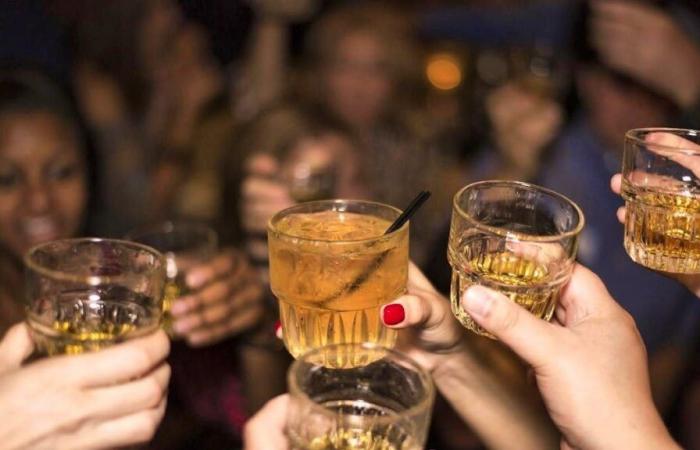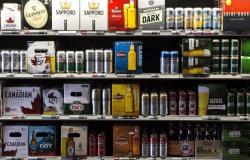The days when getting drunk was considered cool seem to be over, notes the “NZZ am Sonntag”. A survey by the Confederation carried out every ten years among the population shows that although the vast majority of Swiss people (83%) continue to consume alcohol, the quantity and frequency are in sharp decline.
In 2022, 12.4% of men reported consuming alcohol daily, compared to 30% in 1992. Among women, this rate fell from 11.5% to barely 5%. Abstinence is particularly marked among young people.
Other figures confirm the trend: in 2023, more than 1.3 million liters less wine will be consumed in Switzerland compared to the previous year, despite population growth. At the same time, beer consumption fell for the first time in its history below 50 liters per person per year. What is a good thing from a health perspective has serious economic consequences for many industries.
Thanks to the high margins made on alcohol sales, restaurants, concert halls and sports event organizers can finance themselves. Bars and clubs are particularly affected. But between 2018 and 2023, revenue per customer fell by 40%.
The demand for alcohol-free alternatives is increasing. But this cannot compensate for the losses. There are already calls for support for the policy: “A city without nightlife is a dead city. Politicians need to start thinking about how they can support nightlife,” says Alexander Bücheli, spokesperson for the Zurich Bar and Club Commission.
The Swiss buy less meat and more dairy products
The eating habits of the Swiss are changing. Flexitarianism, this diet which consists of reducing one’s consumption of meat and fish without giving it up completely, is booming. The number of households living this way increased significantly between 2022 and 2024, from 18 to almost 27%. This is demonstrated by a study by the University of St. Gallen, co-financed by the food manufacturer Danone, which the “SonntagsZeitung” was able to read before the official publication.
The survey also shows that the Swiss do not buy more vegetables, cereals and legumes instead of steaks and sausages, but rather more dairy products, “without however being aware that their production generates a lot of CO2” , according to the study’s lead author Matthias Eggenschwiler.






